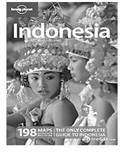During the 1800s, African Americans worked long days in the fields of the American South.To ease their labor, they sang "field hollers" that they had brought from Africa.One person sang a line.Then a group of workers repeated it.The songs' words told of the hardships that people suffered.African Americans sang "shout spirituals", or joyous religious songs.They clapped their hands and stomped their feet to the music.
After the Civil War, the music changed dramatically.African American music, from ballads to church music, took new forms.It also adapted dance music, called "jump-ups".which had great rhythm. Banjos became popular.A blues singer usually played a call and response with the banjo.By the early 1900s, the guitar had replaced the banjo as the main blues instrument.
Northern Mississippi - called the Delta - was the center of the blues tradition.By the 1920s, the Delta had many clubs, so-called juke joints.African Americans listened and danced to music in these clubs.Some of the greatest blues men and women performed there.
Blues have a soulful sound that is easy to recognize.The musical notes are often "bent".That is, they are changed slightly to give a song more strength.Whatever their origin, these bent notes most often define the blues.
Lyrics are the words of a song.Blues lyrics describe everyday life.The lyrics, often about relationships between men and women, are often very intense and personal.They tell about sorrow and overwork.They tell about finding or losing love, having money or being broke, being happy or sad and lonely.The lyrics may use humor to describe life's trials and joys.They almost always use the rhythms of everyday speech.A typical blues stanza, or group of lyrics, has three lines.The second line repeats the first line.The third line has different words.
By the 1940s, large numbers of African Americans had left the Delta and moved north to work. Many settled in Chicago.There, a new kind of "electric", or "Chicago" blues began.Many of its themes were the same, but these blues had "wailing" electric guitars and harmonicas.The music had a steady, strong drumbeat.The loud, driving Chicago blues was excellent dance music.Chicago blues led to the birth of a new music style-rock and roll.
小题1:The "field holler" is a kind of music that came from ___.
| A.the American South. | B.Africa. |
| C.Chicago. | D.Asia. |
小题2:"Shout spirituals" and "field hollers" are similar in that both_____.
| A.used banjos. | B.were sung in church. |
| C.included call and response singing. | D.expressed sadness. |
小题3:A typical blues Stanza is made up of____.
| A.three lines. | B.a harmonica. |
| C.a driving beat. | D.four lines. |
小题4:One can conclude from the passage that the blues ___.
| A.would have widespread without the juke joints of the Mississippi. |
| B.served as a form of communication and self-expression. |
| C.was successful only in the American South. |
| D.there were only greatest blues man performed in these clubs. |
小题5:African Americans probably moved to Chicago because ____.
| A.the South was too hot in summer. |
| B.they liked the Chicago blues. |
| C.there were more jobs there. |
| D.they wanted to create a new music style. |



 天天向上一本好卷系列答案
天天向上一本好卷系列答案 小学生10分钟应用题系列答案
小学生10分钟应用题系列答案